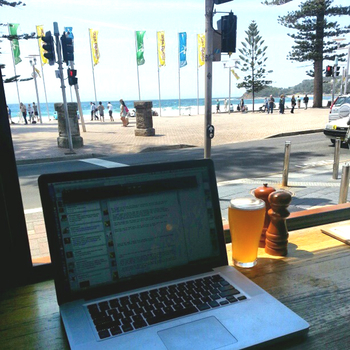 I hadn’t even heard of Click Frenzy until the thing fell over, which shows how much attention I pay to the realm of commercial retail. But I ended up talking about it on ABC 702 Sydney the other day, because, well, it fell over.
I hadn’t even heard of Click Frenzy until the thing fell over, which shows how much attention I pay to the realm of commercial retail. But I ended up talking about it on ABC 702 Sydney the other day, because, well, it fell over.
I’ve posted the entire radio segment here, including the comments by Margie Osmond, chief executive of the Australian Retailers Association, because I was baffled by her excuse that technical incompetence is OK because other people are sometimes incompetent too.
I think the important thing to understand with this is that it’s been running for about five, six years in overseas countries. It runs in the US and UK and a whole range of other places under the Cyber Monday banner. And for all of that period that it has been operating overseas, as recently as last year, they routinely have crashes as part of this mechanism, simply because of the unpredictable peaks and troughs that occur as part of the mechanisms.
Traffic analysis is a thing, folks, and so is robust network design. Just because you can’t do it, doesn’t mean it can’t be done.
I was fairly even-handed in my commentary, pointing out that it’s possible for the developers to have recommended a more robust architecture that then wasn’t implemented because of cost or whatever. But later in the day I discovered more about the technical problems and I’d have gone in harder.
In particular, I discovered that they’d committed a rather bad security mistake, which I wrote about for ZDNet: Password exposed in Click Frenzy security slip.
The morning presenter at ABC 702 Sydney is Linda Mottram.
Podcast: Play in new window | Download (Duration: 10:51 — 8.7MB)
The audio is ©2012 Australian Broadcasting Corporation.




 My regular spot on
My regular spot on